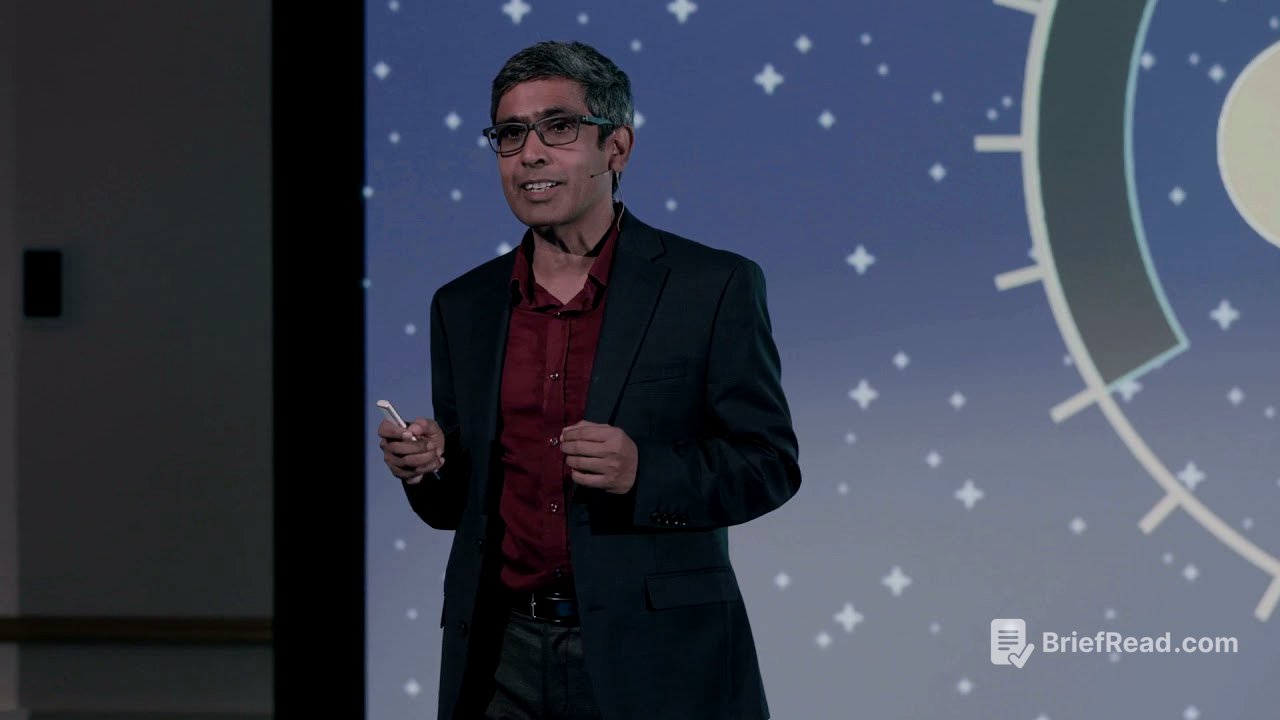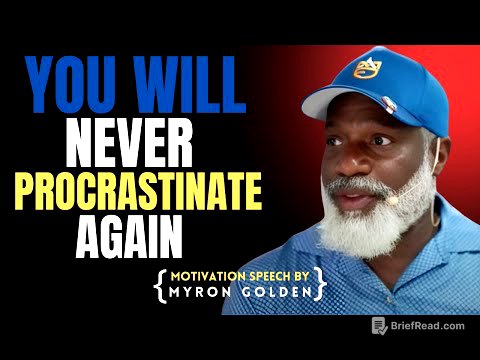TLDR;
The speaker discusses the importance of circadian rhythms for achieving peak physical, emotional, and intellectual performance at any age. They highlight how modern lifestyles often disrupt these rhythms, leading to various health issues. The speaker introduces six simple rules to optimize circadian rhythms: consistent sleep, delayed morning eating, time-restricted eating, daylight exposure, afternoon exercise, and evening wind-down routines. By following these guidelines and redesigning our environments, we can improve our health, prevent diseases, and live longer, healthier lives.
- Circadian rhythms are internal timetables that regulate gene activity and optimize bodily functions.
- Modern lifestyles often disrupt circadian rhythms, contributing to various health issues.
- Six simple rules can help optimize circadian rhythms and improve overall health.
Introduction: The Universal Goal of a Long, Healthy Life [0:09]
The speaker begins by stating that everyone shares the goal of living a long and healthy life, aspiring to achieve peak physical, emotional, and intellectual performance regardless of age or health condition. The speaker is committed to the science of circadian rhythm, which is understanding how our body is programmed to be fit for every hour of the 24 hours a day. They aim to share insights from their research to help everyone achieve this shared dream.
The Impact of Collective Illnesses on Peak Performance [0:48]
The speaker discusses how various illnesses, including infectious, metabolic, chronic diseases, brain conditions, and injuries, hinder our ability to live at peak performance. They cite statistics indicating that a significant portion of the population in the U.S. suffers from conditions like high blood pressure, prediabetes, diabetes, cancer, and other diseases, which reduce both performance and healthy living years.
Circadian Rhythm: The Longevity Code in Our DNA [2:27]
The speaker introduces the concept of circadian rhythms as a pre-programmed longevity code present in our DNA. These internal timetables exist in every cell and organ, guiding the activity of our genes to optimize performance. Circadian rhythms help prevent disease, improve immune function, accelerate repair mechanisms, optimize brain function, and supercharge metabolism, detoxification, and DNA repair.
Six Simple Rules to Take Care of Your "Circadian Car" [4:23]
The speaker presents six simple rules to align with our circadian rhythms:
- Eight Hours in Bed: Aim for consistent bedtime and ensure eight hours in bed to achieve at least seven hours of restorative sleep, during which hormones and chemicals are produced to repair the brain and body.
- Avoid Eating for at Least an Hour in the Morning: Allow organs time to fully awaken before eating to improve digestion and control blood glucose.
- Time-Restricted Eating or Intermittent Fasting: Eat all meals and beverages within an eight to twelve-hour window, leaving twelve to sixteen hours for fasting, to maintain a robust circadian rhythm and manage weight, blood pressure, blood glucose, and immune system.
- Get 30 Minutes of Daylight: Spend time outdoors to re-synchronize the brain clock, reduce depression, elevate mood, and obtain vitamin D.
- Daily Exercise in the Afternoon: Engage in brisk walking or exercise in the late afternoon or evening when muscles are most efficient and the risk of injury is lower; this is particularly beneficial for those with prediabetes or diabetes.
- Winding Down: Avoid food and dim lights two to three hours before bedtime to improve digestion, reduce acid reflux, and increase the production of melatonin for restorative sleep.
The Impact and Benefits of Circadian Optimization [8:34]
The speaker emphasizes that aligning with circadian rhythms allows everything in the brain and body to fall into place. Research indicates that intermittent fasting or time-restricted eating improves health, increases performance, and prevents chronic diseases. Animals with optimized circadian rhythms maintain youthful fitness, better brain function, high muscle mass, better heart function, and lower risk for cancer and dementia, while also fighting infections better and living longer.
Redesigning the World for Optimum Circadian Rhythm [11:05]
The speaker acknowledges that modern society is not designed to support optimum circadian rhythms. They suggest redesigning homes, hospitals, colleges, and retirement homes to mimic bright daylight and darker nights. Optimizing tools and appliances, using smart automation to reduce night-shift work, and developing new diagnostics and wearables can also help. The speaker also mentions working with scientists and industry partners to develop public policies and guidelines for school start times, work schedules, and daylight saving time.









